|
Coles and Woolworths hold a huge amount of power over the Australian grocery market. And they often don’t use it for good, instead squeezing suppliers, underpaying workers and manipulating prices.
While these tactics are coming under well-deserved scrutiny, there’s another aspect of the supermarket duopoly’s relentless drive for profit that has received less attention. As Lauren Kate Kelly explains, the pair are also developing “a growing high-tech infrastructure of surveillance and control that pervades retail stores, warehouses, delivery systems and beyond”.
In practice, this means cameras tracking shoppers and staff, automated security gates at the self-checkout, elaborate “crime intelligence” data analysis, and the integration of gig economy apps like Doordash and Uber Eats. Taken together, these measures amount to an alarming transformation of the supermarket business.
Speaking of supermarkets, if you’re thinking about buying plant-based foods, your weekly shop can be a bit bewildering. Fridges are increasingly loaded with plant-based burgers, sausages and mince, as well as non-dairy alternatives to milk, cheese and yoghurt.
But are these any good for you? A recent audit found some are so high in salt or saturated fats, you’d struggle to call them healthy.
Laura Marchese and Katherine Livingstone investigated some 700 different plant-based products on supermarket shelves. Here’s what they found.
And finally, later today we’re launching our brand new Books & Ideas newsletter, bringing you a weekly dose of the best essays, reviews and debates. Do your brain a favour and sign up here.
|

|
Michael Lucy
Science Editor
|
|
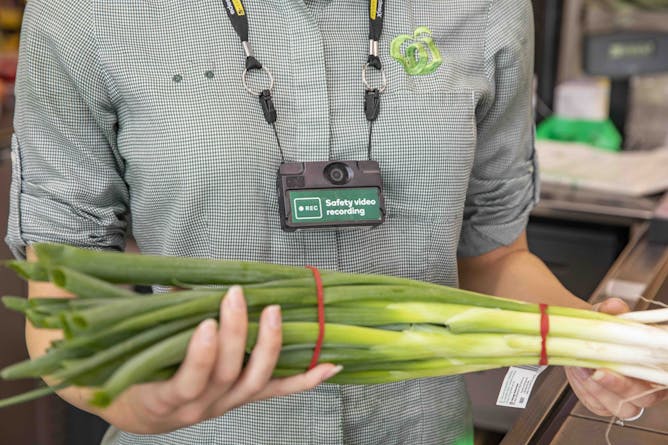
Lauren Kate Kelly, RMIT University
The hidden side of the supermarket giants’ quest for profits is an increasingly elaborate system for monitoring and managing shoppers and workers.
|
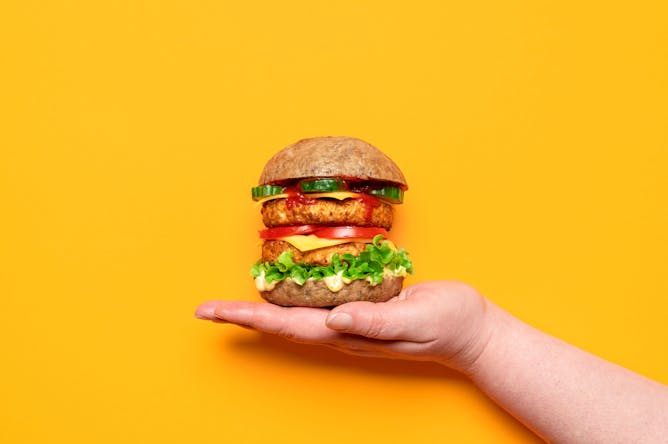
Laura Marchese, Deakin University; Katherine Livingstone, Deakin University
You might be surprised how salty or fatty some plant-based foods are. Not so healthy now, are they?
|
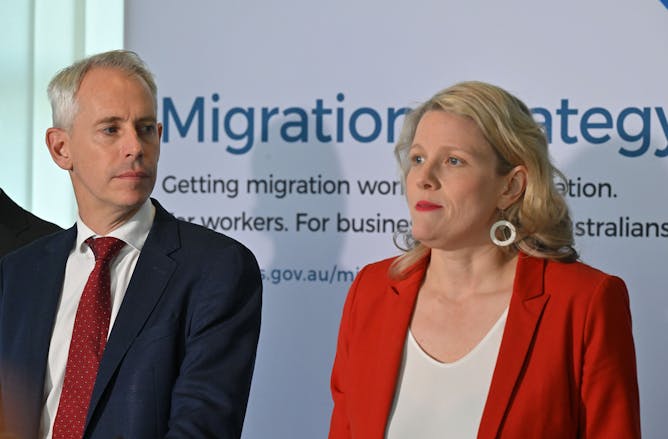
Michelle Grattan, University of Canberra
The Home Affairs’ department has been a nest of trouble. There are very strong arguments for breaking it up. With an election just a year out perhaps the Prime Minister may want to freshening his team?
|
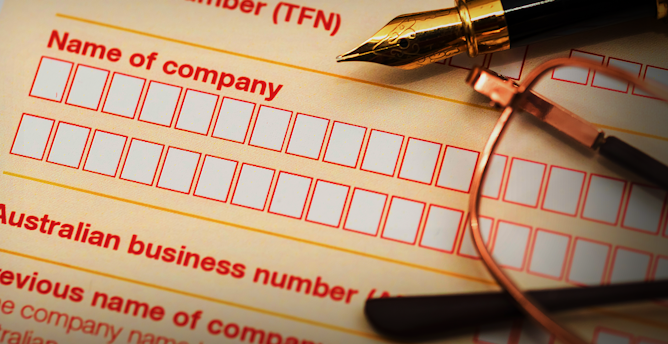
Ann Kayis-Kumar, UNSW Sydney
The Tax Office has been writing off hard-to-collect debts for years, but it hasn’t had the power to do it. Unless we give it that power, it’ll be forced to push vulnerable Australians into debt.
|

Kate Burridge, Monash University; Isabelle Burke, Monash University
For Australians, it’s a love story, so baby just say “yeah-nah”.
|

Louise Grimmer, University of Tasmania
Taylor Swift is everywhere right now – but could that dent her popularity?
|

Cris Townley, Western Sydney University
Children are often allowed to freely explore their identities in early childhood services. But when they get to school, they are categorised as ‘boys’ or ‘girls’.
|
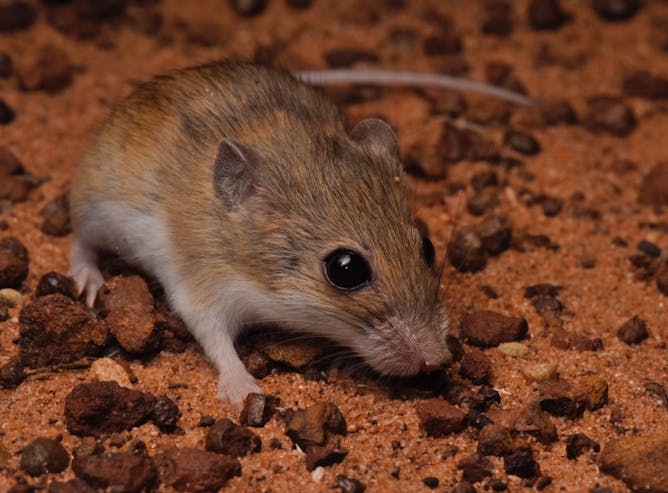
Emily Roycroft, Australian National University
The delicate mouse – widespread across Australia – has turned out to be three different species. This will help to save them from habitat loss.
|

Steven Kenway, The University of Queensland; Liam Smith, Monash University; Paul Satur, Monash University; Rob Skinner, Monash University
More efficient water use is one of the most cost-effective steps we can take to cut emissions.
|
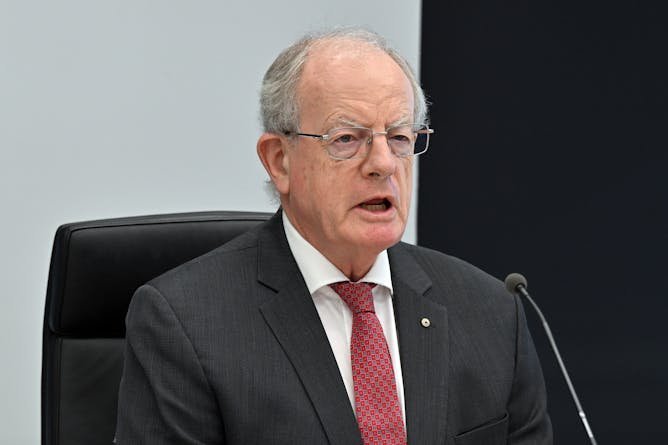
Michelle Grattan, University of Canberra
National Anti-Corruption headed by Paul Brereton will provide guidance on “corruption vulnerabilities” ahead of next year’s federal election in a conference speech hosted by the Mandarin
|

Cherine Fahd, University of Technology Sydney
House of Gods is a gripping new Australian TV drama, written by Arabs, featuring Arabs.
|

Raymond Evans, Griffith University
Many argue Samuel Griffith, twice Queensland premier and our first chief justice, is guilty of colonial war crimes. Raymond Evans searched for the evidence to nail him but found a different story.
|
Health + Medicine
|
-
Michaela Estelle Okninski, University of Adelaide; Marc Trabsky, La Trobe University; Neera Bhatia, Deakin University
It’s illegal to discuss voluntary assisted dying via telehealth, which means people who live in rural areas and those who can’t physically go to see a doctor may not be able to access the scheme.
|
|
Science + Technology
|
-
Dr Anastasia Hronis, University of Technology Sydney
The world’s largest online dating company – which runs Tinder, Hinge, OkCupid, The League and more – is being sued for making its apps too addictive. Are we swiping right into a trap?
-
Tobias Loetscher, University of South Australia; Gregory Crawford, University of Adelaide
One person said they wanted a VR experience that allowed them to explore Paris again.
|
|
Environment + Energy
|
-
Bruce Mountain, Victoria University
Transmission towers bent like soft plastic when extreme winds whipped through Victoria last week. Fixing it means asking hard questions.
-
Nathanael Melia, Te Herenga Waka — Victoria University of Wellington
The recent Port Hills fires highlight the increasing wildfire risks caused by climate change. Reducing the threat is going to take a shift in strategy, investment and community engagement.
-
Kate Marie Quigley, James Cook University
The best strategy to protecting Earth’s coral reefs is to dramatically cut greenhouse gas emissions. But in the meantime, we must urgently make corals more resilient.
|
|
Arts + Culture
|
-
Shane Rogers, Edith Cowan University
Have you ever joined an online hate spiral for the sake of it, and not because you actually cared all that much?
|
|
Books + Ideas
|
-
Sally Breen, Griffith University
At 27, Robyn Davidson trekked through the Australian outback with four camels and a dog. In her long-awaited memoir we come closer to knowing why she made this journey.
|
|
| |
|
|
|
The Conversation AU
Melbourne VIC, Australia
•
Full Time
|

|
|
The Conversation AU
Melbourne VIC, Australia
•
Full Time
|

|
|
|
|
| |
| |

|
| |
| |
| |
Featured Events, Courses & Podcasts
|
View all
|
|
1 January 2023 - 7 October 2026
•
|

|
1 February 2023 - 25 November 2029
•
|
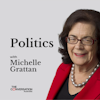
|
4 March - 13 May 2024
•
Clayton
|

|
1 - 8 March 2024
•
Sydney
|

|
|
|
|
| |
| |
| |
| |
| |
|
|